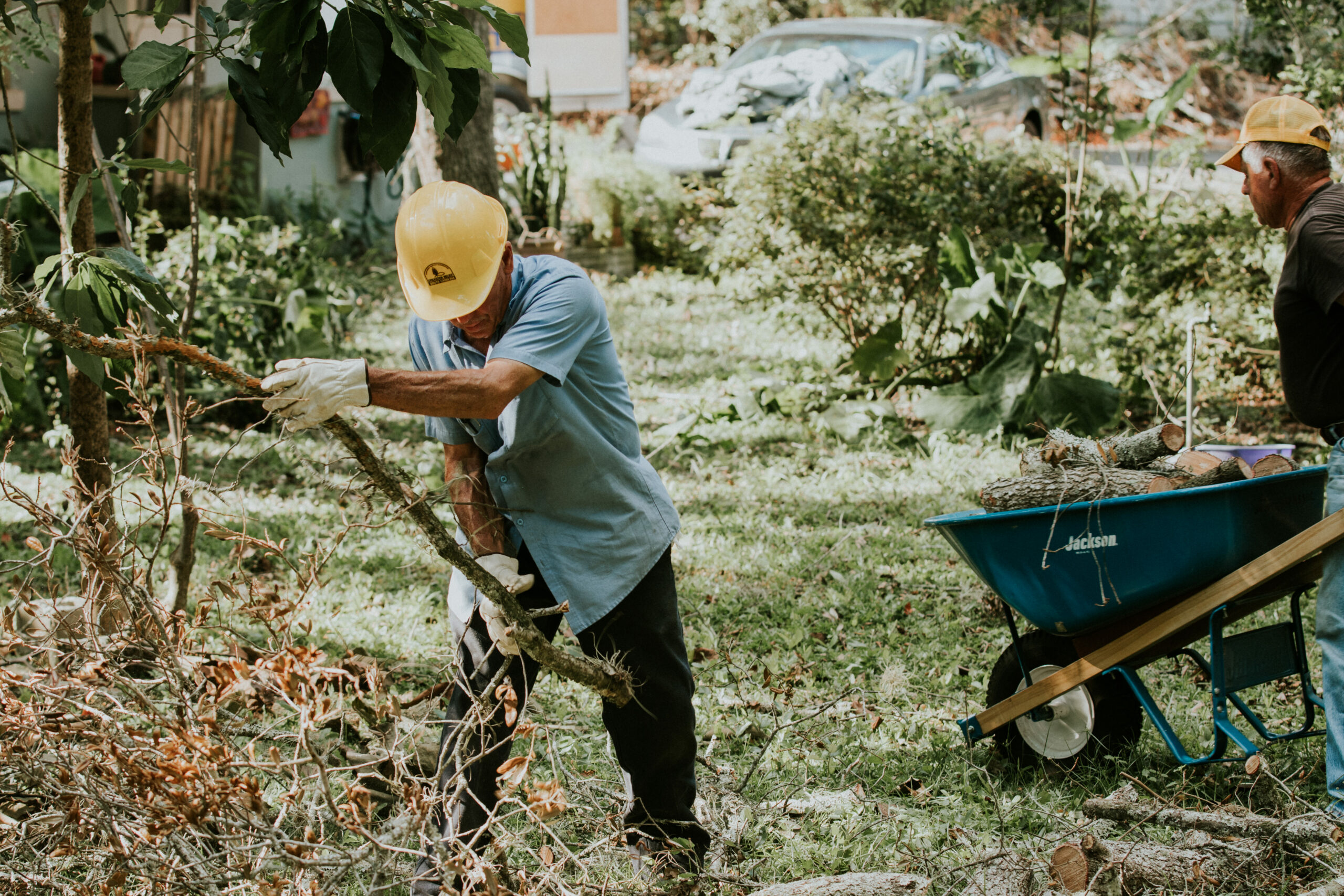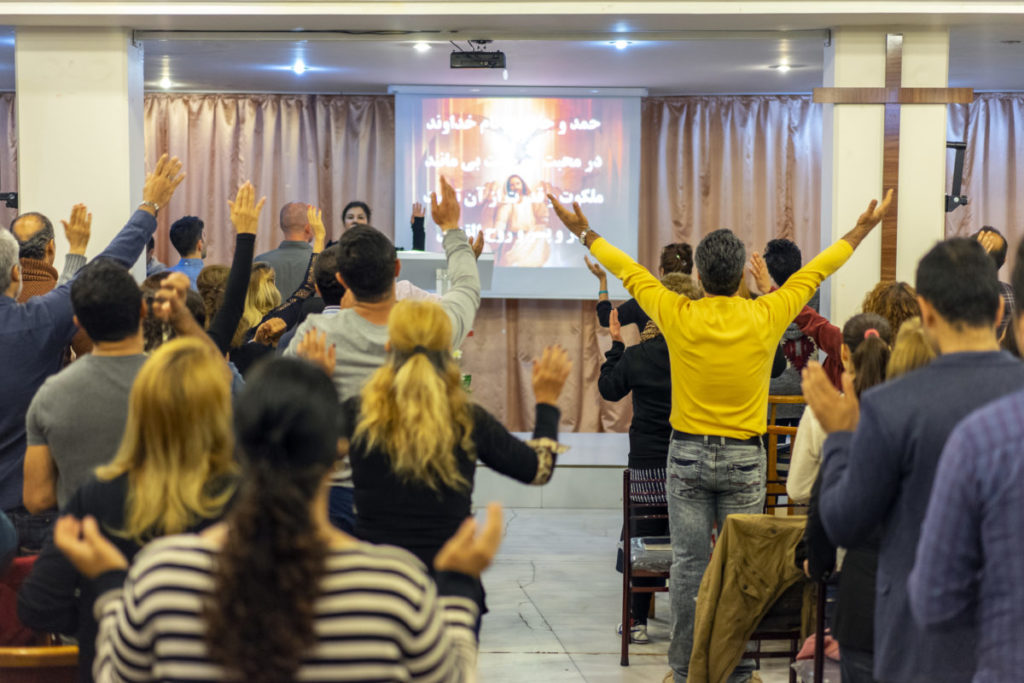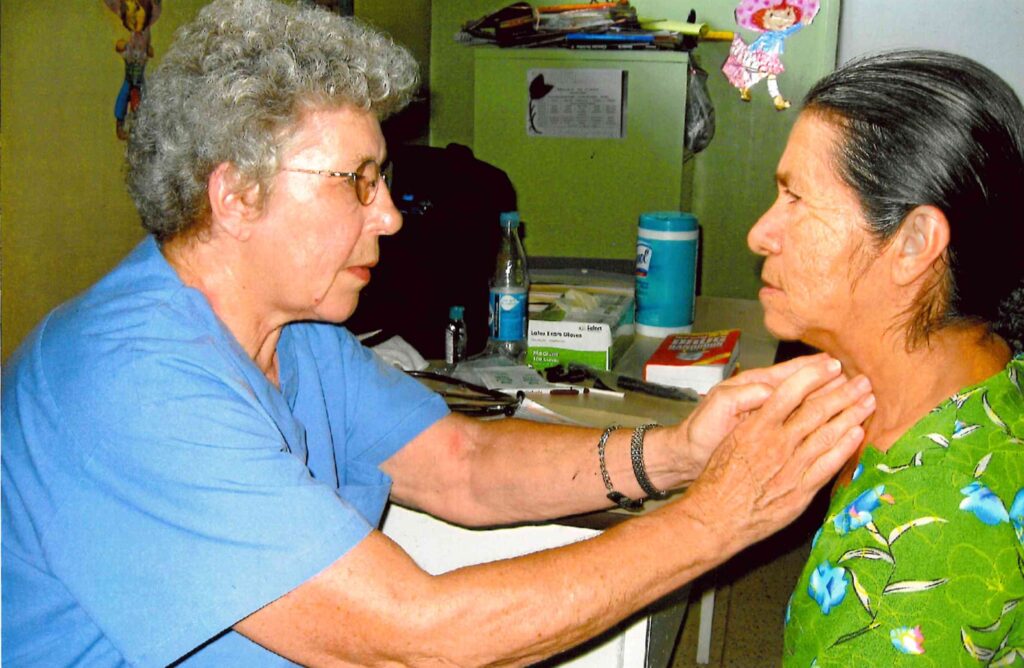Regathering to Serve
WHAT DO WE DO WITH BENEVOLENCE REQUESTS WHEN SO MANY IN OUR COMMUNITY HAVE LOST JOBS AND ARE IN NEED?
- In normal seasons, most individuals asking for assistance from your church are not in a crisis. They are in a chronic state of poverty which ought to lead you to offer support and services rather than financial assistance. In this COVID-19 season, however, many will be in crisis and the most appropriate response may be to offer financial or other immediate assistance.
- Consider using a special benevolence offering to meet these needs or enlist Sunday School/small groups to meet needs of a particular person.
- position before. They may be too embarrassed to ask for help and they may not know where to turn. Know the resources in your community and make this list available.
- Donations to local Food Banks are always helpful.
- Buy bulk foods direct from producers. Give away or sell at a reduced rate.
- Consider partnering with schools to provide food to those families identified as “food insecure” over the summer break – and then continue to provide weekend “backpacks” (gallon zipper bags of nutritious foods) for students to take home on weekends when school resumes.
AS OUR CHURCH MEETS IMMEDIATE NEEDS CREATED BY THE PANDEMIC, HOW CAN WE MOVE BEYOND THOSE IMMEDIATE NEEDS TO DEVELOP RELATIONSHIPS & PROVIDE LASTING STABILITY FOR THOSE INDIVIDUALS/FAMILIES?
- If needs arise for those who are typically self-sufficient, their long-term recovery will be different than those who are chronically impacted by poverty.
- For those primarily affected by this current crisis, they will need support, encouragement, and would benefit from short term financial (or in kind) assistance.
- For those who are chronically facing need which has been exasperated due to the pandemic, they will need similar short term financial (or in kind) assistance, but will also need long term support, networking help, and friendship.
- A heavy dose of discernment is needed here. Create policies that will keep you engaged in wise stewardship of your resources but will also allow for meaningful ministry to take place.
HOW CAN WE HELP FILL IN THE GAP FOR STUDENTS WHO WERE ALREADY WORKING BELOW GRADE LEVEL AND NOW WILL BE FURTHER BEHIND?
- We can work with schools to provide a “Feed and Read” during the summer. Invite students to a special lunch once a week and have volunteers read with them.
- Book Drive. Work with principals to provide books (a book on their reading level) for students to read over the summer. Coordinate having them delivered with school packets or meals.
- Ask your local school how you can help. If they would like mentors for students, plan to get background checks and train volunteers this summer.
- Visit www.Heart4Schools.org for ways that you can make a difference in your local school and community when classes resume.
HOW CAN WE MINISTER TO OUR CHURCH MEMBERS WHO HAVE EXPERIENCED LOSS – DEATH OF A LOVED ONE OR FRIEND, LOSS OF JOB AND/OR INCOME, LOSS OF A DREAM? (TEACHERS HAVE ALSO EXPERIENCED LOSS IN NOT FINISHING THE YEAR WITH STUDENTS. STUDENTS HAVE EXPERIENCED LOSS OF SPECIAL EVENTS, SPORTS, AND TIME WITH FRIENDS.)
- Be prepared to acknowledge loss of many kinds. If you know of specific cases, reach out and talk with the person. Pray with them and for them. Do something tangible for them such as a meal or a gift card for take-out with an encouraging note.
- If your church doesn’t offer counseling services, find out who in your area provides Christian counseling.
- Enlist a Disaster Relief Chaplain, through your local Association, to provide opportunities for ‘Debrief Sessions’.
- Consider offering Grief Share or Grief Recovery in your church.
WHAT IF SOME IN MY CONGREGATION HAVE ANXIETY ABOUT GATHERING AGAIN AND RESUMING NORMAL ACTIVITIES (AT CHURCH OR BEYOND)?
- Be patient. Be aware. Be empathetic.
- Give options for continuing online engagement.
- Give clear indication of safety protocols that are in place….and follow the protocols.
WHAT DO WE DO TO MINISTER TO THOSE WHO ARE “AT RISK” AND NOT ABLE TO JOIN OUR CONGREGATION AT THIS TIME?
- Ask your congregation to help you identify these people. Enlist volunteers to make phone calls to encourage them during their continued time of isolation. Chances are these people have not been ‘tech savy’ and have not been joining the congregation’s livestream or Facebook services.
- Enlist volunteers to go to the grocery store or run errands for those at risk.
HOW DO WE MINISTER TO OUR DOCTORS, NURSES AND FIRST RESPONDERS? THEY MAY NOT BE ABLE TO “REGATHER” AT THIS TIME. THEIR WORK HOURS MAY PROHIBIT THIS – AND THEY MAY NEED TO CONTINUE SOCIAL DISTANCING AS THEY ARE EXPOSED TO ILLNESSES.
- Have a time of prayer for them during your services and let them know you are doing this. You may even ask for a picture of them and have this projected on a screen or printed in a bulletin.
- Have church members send them notes. Provide gift cards for “to go” food as a thank-you and tangible way of showing your care.
- Continue to offer online services and small group opportunities to reach marginalized groups and those unable to regather. Continue to use the creative platforms that have become the norm in this season.
HOW CAN CHURCH DISASTER RELIEF TEAMS SERVE IN DISASTERS UNDER CONTINUING PANDEMIC RESTRICTIONS, SUCH AS DURING THE UPCOMING HURRICANE SEASON?
- Only teams within a driving distance will be asked to serve. This will allow teams to travel home each night, eliminating the need for housing groups together in churches.
- Travel separately, or in groups of no more than 3 per vehicle, to the deployment site.
- Maintain 6 ft of distance from others while working.
- Wear masks or face coverings.
- Wash or sanitize hands frequently.
- Assign a team member to wipe down/sanitize shared tools & equipment after each use.
WHAT OPPORTUNITIES WILL THERE BE FOR GETTING NEW VOLUNTEERS CREDENTIALED TO SERVE IN DISASTER RELIEF IF STATEWIDE TRAINING EVENTS ARE NOT HELD?
- Smaller trainings for associations or groups of churches are possible. These would be targeted to the type of DR ministry already existing in that association or church, so that new team members could be added to the existing unit.
- Contact your association or state DR leadership for training opportunities.
HOW CAN OUR CHURCH FOOD PANTRY/MINISTRY MEET THE INCREASED DEMANDS CREATED BY THE PANDEMIC? WILL OUR MINISTRY NEED TO PERMANENTLY ADJUST OUR PROCESS OF OPERATION FOLLOWING THE STAY AT HOME ORDER?
- Communicate to your members a list of needed items to restock your pantry. Be sure to provide a drop off location & times. Partner with others in the community to collect/distribute items.
- Volunteers wear gloves and masks. Continue to provide drive-thru/curbside service to those who may be “at risk.”
- If gathering is not appropriate, consider offering To Go meals for kids, with Bible Study materials included.



